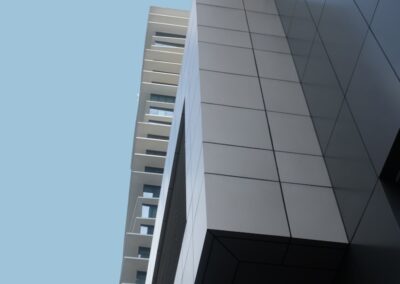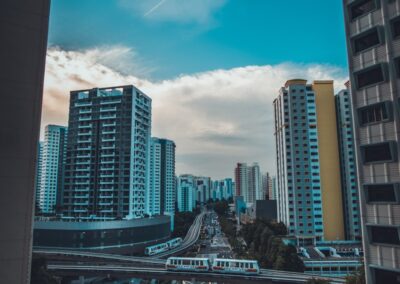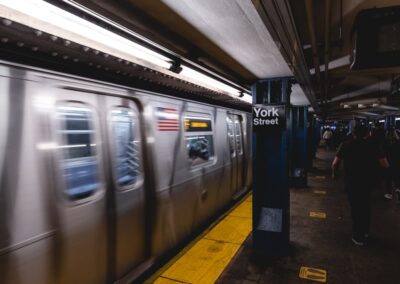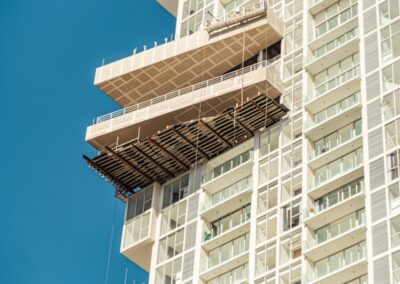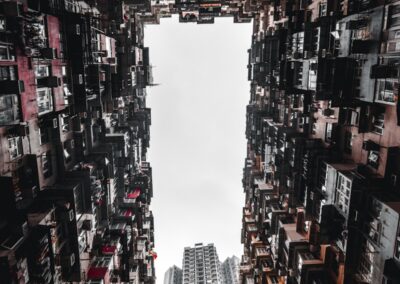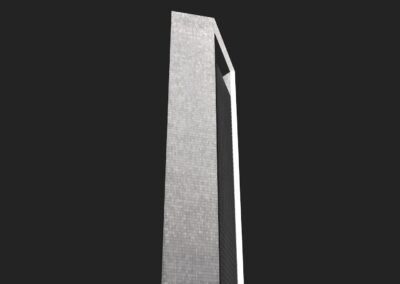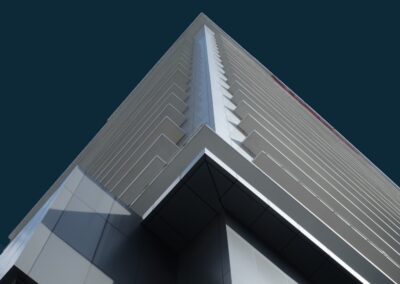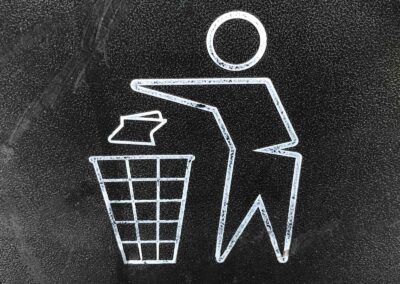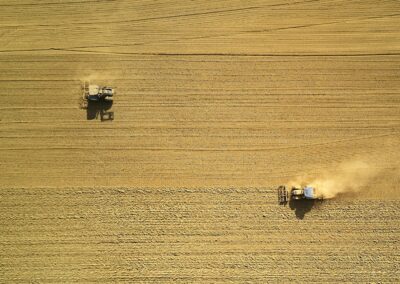Efficient Solutions for Sustainable Cities
Introduction to Waste Management in Vertical Urban Developments
The integration of waste management systems in vertical urban developments has become a critical aspect of sustainable city planning. Efficient waste and recycling management in high-rise buildings, particularly in rapidly growing regions like Saudi Arabia and the UAE, is essential to address the environmental challenges of urbanization. Advanced waste management systems not only help in maintaining cleanliness but also promote sustainability by ensuring proper recycling and disposal of waste.
In Riyadh, the capital city of Saudi Arabia, urban planners are increasingly focusing on incorporating state-of-the-art waste management solutions in new vertical developments. These solutions aim to streamline waste collection, segregation, and recycling processes, thereby reducing the environmental footprint of high-rise buildings. By implementing innovative waste management systems, Riyadh is setting a benchmark for sustainable urban living.
Dubai, known for its futuristic architecture and sustainable initiatives, is also leading the way in efficient waste management for vertical urban developments. The city’s vision for a sustainable future includes comprehensive waste management strategies that leverage technology to enhance efficiency and reduce waste. These strategies are crucial for maintaining Dubai’s commitment to sustainability and environmental conservation.
Advanced Waste Collection Systems
One of the primary components of efficient waste management in vertical urban developments is the implementation of advanced waste collection systems. Traditional waste collection methods can be inefficient and cumbersome in high-rise buildings. Therefore, modern developments in Riyadh and Dubai are adopting automated waste collection systems that streamline the process.
In Riyadh, new high-rise projects are equipped with pneumatic waste collection systems. These systems use a network of underground pipes to transport waste from individual apartments and offices to a central collection point. The waste is then automatically sorted and compacted, reducing the need for manual handling and minimizing the risk of contamination. This not only improves efficiency but also enhances hygiene and safety.
Dubai has taken a step further by integrating smart waste collection systems in its high-rise buildings. These systems use IoT (Internet of Things) sensors to monitor waste levels in real-time and optimize collection schedules. The data collected from these sensors helps in predicting waste generation patterns and improving the overall efficiency of waste management. By leveraging technology, Dubai is setting new standards for waste collection in vertical urban developments.
Innovative Recycling Solutions
Recycling is a crucial aspect of sustainable waste management, and vertical urban developments must prioritize efficient recycling systems. In Saudi Arabia and the UAE, innovative recycling solutions are being implemented to ensure that waste generated in high-rise buildings is properly sorted and processed.
In Riyadh, urban planners are incorporating dedicated recycling centers within high-rise buildings. These centers are equipped with advanced sorting machines that segregate recyclable materials from general waste. Residents are encouraged to participate in recycling programs through awareness campaigns and incentives. By making recycling convenient and accessible, Riyadh is promoting a culture of sustainability among its urban population.
Dubai, on the other hand, is leveraging cutting-edge technology to enhance its recycling efforts. The city has introduced smart recycling bins that use AI (Artificial Intelligence) to identify and sort recyclable materials. These bins are equipped with cameras and sensors that analyze the waste and automatically separate recyclables from non-recyclables. The data collected from these bins is used to optimize recycling processes and reduce contamination. This innovative approach is helping Dubai achieve its ambitious recycling targets and minimize its environmental impact.
Waste-to-Energy Conversion
Waste-to-energy conversion is an emerging trend in waste management that offers a sustainable solution for managing waste in vertical urban developments. This process involves converting waste materials into usable energy, thereby reducing the volume of waste that ends up in landfills and generating renewable energy.
In Saudi Arabia, Riyadh is exploring the potential of waste-to-energy conversion to address its waste management challenges. New high-rise developments are being designed with waste-to-energy facilities that can convert organic waste into biogas and electricity. This not only helps in managing waste efficiently but also provides a sustainable source of energy for the buildings. By integrating waste-to-energy systems, Riyadh is taking a proactive approach to sustainable urban development.
Dubai has already made significant strides in waste-to-energy conversion. The city’s waste-to-energy plants are capable of processing large volumes of waste and generating substantial amounts of electricity. These plants use advanced technologies such as anaerobic digestion and incineration to convert waste into energy. The energy produced is used to power buildings and infrastructure, reducing the city’s reliance on fossil fuels. Dubai’s commitment to waste-to-energy conversion is a testament to its leadership in sustainable waste management.
Leadership and Management in Waste Management Projects
Effective leadership and management are crucial for the successful implementation of waste management systems in vertical urban developments. Leaders in Saudi Arabia and the UAE are prioritizing sustainable waste management initiatives to enhance the livability and sustainability of their cities. By fostering innovation and collaboration, they are driving progress in waste management.
In Riyadh, leadership programs are being developed to equip urban planners and developers with the skills and knowledge needed to manage waste management projects effectively. These programs focus on best practices, innovative technologies, and regulatory compliance, ensuring that waste management systems are implemented efficiently and sustainably.
Project management is also critical in coordinating the various aspects of waste management projects. In Dubai, project managers are employing advanced project management techniques to oversee the planning, design, and implementation of waste management systems. By ensuring that projects are completed on time, within budget, and with a focus on sustainability, project managers are playing a vital role in the city’s waste management efforts.
Training and development programs are essential for building a workforce that is proficient in modern waste management practices. In Saudi Arabia, training initiatives are being implemented to educate professionals on the latest waste management technologies and methodologies. These programs emphasize practical skills and ethical considerations, preparing leaders to make informed decisions about waste management in vertical urban developments.
Case Studies: Successful Waste Management Projects
Several case studies highlight the efforts of Saudi Arabia and the UAE in successfully implementing waste management systems in vertical urban developments. One notable example is a high-rise residential complex in Riyadh that has integrated a comprehensive waste management system. The system includes automated waste collection, advanced recycling facilities, and a waste-to-energy plant. This project demonstrates the effectiveness of combining multiple waste management solutions to achieve sustainability goals.
In Dubai, a luxury high-rise development has adopted smart waste management technologies to enhance efficiency and sustainability. The building features IoT-enabled waste collection systems, smart recycling bins, and a waste-to-energy facility. These technologies work together to minimize waste, optimize resource use, and reduce environmental impact. This initiative has set a new benchmark for sustainable waste management in urban developments.
Another successful project involves a public-private partnership in the UAE that focuses on promoting sustainable waste management practices in high-rise buildings. This partnership provides resources and training for developers and architects to implement innovative waste management systems. By fostering collaboration and knowledge sharing, the initiative aims to establish best practices and standards for waste management in vertical urban developments.
Future Trends and Conclusion
The future of waste management in vertical urban developments lies in continuous innovation and the integration of advanced technologies. As urban populations grow and the demand for sustainable waste management solutions increases, cities like Riyadh and Dubai will play a crucial role in shaping the future of urban living. Ongoing investments in research and development will drive further advancements in waste management technologies, ensuring that high-rise buildings can manage waste efficiently and sustainably.
In conclusion, while waste management in vertical urban developments presents significant challenges, it also offers immense potential for enhancing sustainability and efficiency. By establishing robust guidelines, promoting responsible design, and enhancing collaboration between stakeholders, cities like Riyadh and Dubai can successfully implement innovative waste management systems. As technology and design continue to evolve, the insights gained from these efforts will play a vital role in shaping the future of waste management in vertical urban developments.
—
#WasteManagement #VerticalUrbanDevelopments #SustainableCities #RecyclingSystems #InnovativeWasteSolutions #UAEinnovation #SaudiArabiaTechnology #RiyadhDevelopment #DubaiSustainability #LeadershipInUrbanPlanning #ProjectManagement




